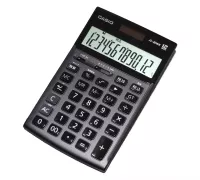The College Board is a U.S. non-profit established in 1899, originally as the College Entrance Examination Board. It aims to broaden access to higher education. The organization operates a membership association comprising over 6,000 educational institutions, including schools, colleges, and universities.
34 minutes ago : Yavapai College Board to meet in person; Midland College approves drilling agreement.
Yavapai College Board is scheduled for an in-person meeting. Meanwhile, Midland College Board has approved a drilling agreement for the campus, allowing resource extraction activities.
1905: Source Material for Article
In 1905, text from the New International Encyclopedia (1st ed.) was used for this article.
1922: Early Criticism of College Board
Criticism of the Board and its exams dates back to at least 1922, with an article from prep school teacher Morgan Barnes, citing issues such as incompetence in grading and overreliance on exam scores.
1926: First Administration of the SAT
In 1926, the SAT, a fee-based digital standardized test for college admissions in the United States, was first administered.
1999: Gaston Caperton Becomes CEO
In 1999, Gaston Caperton, former governor of West Virginia, became the CEO of the College Board.
2004: Development of AP Chinese Program
In 2004, Hanban and the College Board developed the "AP Chinese Language and Culture Course and Exam" program.
October 2005: Tests Incorrectly Scored
In October 2005, the College Board gave several thousand tests that would later be discovered to be incorrectly scored in March 2006.
2005: Correlation Between Essay Length and Score
In 2005, MIT Writing Director Les Perelman found a high correlation between essay length and essay score on the new SAT, even with factual inaccuracies.
March 2006: Incorrect Scoring of Tests Discovered
In March 2006, it was discovered that the College Board had incorrectly scored several thousand tests taken in October 2005 and waited months to respond.
2006: Financial Ties with Hanban
In 2006, the College Board had a financial ties with Hanban.
2009: Criticism for Executive Compensation
In 2009, Americans for Educational Testing Reform (AETR) criticized the College Board for excessive profits and executive compensation, noting that CEO Gaston Caperton earned $1.3 million.
2009: Executive Compensation Package
In 2009, the College Board paid out a $1.3 million/year compensation package for CEO Caperton and also paid 19 executives more than $300,000 each per year.
October 2012: David Coleman becomes CEO
In October 2012, David Coleman became the CEO of the College Board, replacing Gaston Caperton.
March 5, 2014: Announcement of Redesigned SAT
On March 5, 2014, the College Board announced a redesigned version of the SAT to be administered in 2016, reverting to the 1600-point scale and making the essay optional.
May 13, 2015: New Credential Initiative Announced
On May 13, 2015, the College Board announced a new credential initiative to increase student interest in STEM careers through a partnership with Project Lead the Way.
2015: Partnership with Khan Academy
In Spring 2015, the College Board partnered with Khan Academy to offer free test preparation materials for the redesigned SAT, including practice problems, videos, and a preparation application.
2016: First Administration of Redesigned SAT
In 2016, the redesigned version of the SAT, announced on March 5, 2014, was administered for the first time, featuring a return to the 1600-point scale and an optional essay.
October 2017: International SAT Given in China
In October 2017, an international SAT was given in China, which was later recycled for the August 25, 2018 SAT in America.
2017: College Board Surplus
In 2017, the College Board had a $140 million surplus.
August 25, 2018: Recycled SAT Exam Given
On August 25, 2018, the SAT given in America was a recycled October 2017 international SAT given in China, with the leaked PDF file available on the internet before the exam.
2018: Pilot Program for Early AP Test Sign-Up
Starting with a pilot program in 2018, the College Board required students to sign up for AP tests during the fall before early-round college decisions were out.
2019: Official Rollout of Early AP Test Sign-Up
In 2019, the College Board officially rolled out the requirement for students to sign up for AP tests during the fall before early-round college decisions are out, drawing criticism from students.
March 2020: Cancellation of Test Dates Due to COVID-19
In March 2020, the College Board announced the cancellation of several test dates due to the COVID-19 pandemic, leading many colleges to adopt test-optional or test-blind admissions policies.
May 2020: Glitches in Digital AP Exams
In May 2020, due to the COVID-19 pandemic, the College Board offered some exams digitally, but glitches prevented some students from submitting their AP exams, leading to retakes in June.
June 23, 2020: Launch of Triunfadores Campaign
On June 23, 2020, the College Board and NBCUniversal Telemundo Enterprises launched a joint public campaign called "Triunfadores" to guide Spanish-speaking families through the college planning process, offering scholarships to students with household incomes less than $60,000.
October 2020: Intention to Terminate Ties with Hanban
In October 2020, the College Board announced its intention to terminate financial ties with Hanban, in place since 2006, following criticism from U.S. senators.
2020: SAT Test Takers Numbers
In 2020, 2.2 million high school students took the SAT Suite of Assessment Program results.
2020: Alternate AP Testing Format
In 2020, due to the COVID-19 pandemic, the College Board created an alternate form of AP testing that had students take exams at home in a shortened 45-minute, open-book format.
January 19, 2021: Discontinuation of SAT Subject Tests
On January 19, 2021, the College Board discontinued SAT Subject Tests in the United States, effective immediately. The tests were phased out for international students the following summer.
June 2021: Discontinuation of Optional SAT Essay
After June 2021, the College Board discontinued the optional essay section of the SAT.
September 2021: Charge for Student Information
As of September 2021, the College Board began charging $0.50 per name for access to student information, leading to criticism and lawsuits over data privacy.
2021: Decline in SAT Test Takers
In 2021, the SAT Suite of Assessment Program results showed that 1.5 million high school students took the test, compared to 2.2 million in 2020.
January 25, 2022: Announcement of Digital SAT
On January 25, 2022, the College Board announced the SAT would be delivered digitally. The digital SAT will be easier to take, easier to give and more relevant. The new features of this digital version of the SAT include: a 2 hours testing period instead of the 3 hours period that has been used for the current SAT, more relevant topics that cover material that is given in college courses, and calculators will be allowed the entirety of the Math portion of the exam.
2024: Transition to Digital PSAT on Bluebook
As of the spring of 2024, all PSATs transitioned to be taken on the Bluebook exam application.
2024: Digital Transition to Bluebook Application
In the spring of 2024, the SAT and PSAT transitioned to digital only exams via the Bluebook application.
March 2025: AP Exam Cost
As of March 2025, AP exams cost $99 with an additional $40 fee for late orders.
June 2025: SAT Reasoning Registration Fee
As of June 2025, the SAT Reasoning registration fee was $68 with an additional $34 fee for late registrations.
2025: Digital Transition of AP Exams
As of 2025, 28 of 36 AP course exams were digital-only.
Mentioned in this timeline
The United States of America is a federal republic located...

An electronic calculator is a portable electronic device designed for...
China officially the People's Republic of China is an East...
Virginia a state in the Southeastern and Mid-Atlantic US lies...
Telemundo is a prominent American Spanish-language television network owned by...

Books are a means of storing information as text or...
Trending

33 minutes ago Rachel Weisz Explores Steamy Fantasies in Netflix's 'Vladimir' Series Featuring Leo Woodall.

33 minutes ago Zack Snyder reveals why Christian Bale's Batman didn't appear in BvS and DCEU.
34 minutes ago Kevin Warsh's potential impact on Federal Reserve policies and rate cut outlook.
34 minutes ago Yavapai College Board to meet in person; Midland College approves drilling agreement.

34 minutes ago Vodafone and Amazon Leo Partner to Expand Mobile Coverage in Europe and Africa

34 minutes ago Luke Grimes discusses Monica Dutton's fate in 'Marshals' and his role as Kayce.
Popular

Jesse Jackson is an American civil rights activist politician and...

Hillary Diane Rodham Clinton is a prominent American politician lawyer...

Jim Carrey is a Canadian-American actor and comedian celebrated for...

XXXTentacion born Jahseh Dwayne Ricardo Onfroy was a controversial yet...

Michael Joseph Jackson the King of Pop was a highly...

Bill Clinton served as the nd U S President from...